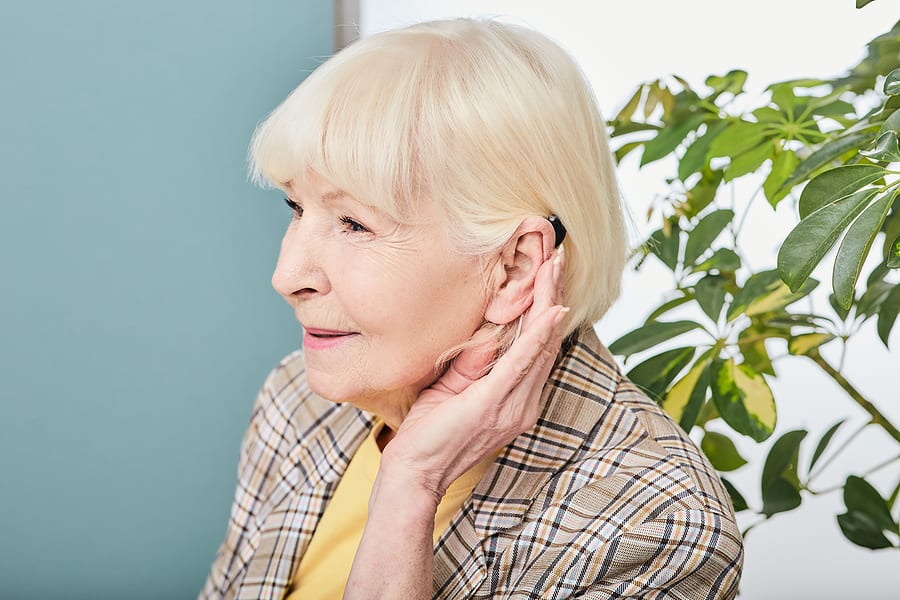Hearing loss is a common issue for many aging seniors. Poor hearing is a part of getting older, and it can create a lot of issues for your loved one. This article will discuss signs that your loved one’s hearing is fading, and ways to improve communication with them.
Signs of Hearing Loss
There are a number of signs that may point to your loved one’s hearing loss. This list will break down each of these signs.
Turning Up the TV
Many seniors will blast the TV volume in order to hear it. Their neighbors may even be able to hear your loved one’s TV from their homes. They may also need to rely on captions in order to understand the show.
Asking For Repetition
Those with auditory problems may ask you to repeat yourself. If you find yourself repeating yourself multiple times to them, you may want to consider making them an appointment with their physician.
Misinterpretation
It can be common for seniors to get mixed up when people are talking to them, because they didn’t hear the words correctly. Your loved one may question what you said because it didn’t make sense to them. Because many English words sound similar, it’s easy to get confused. If they provide odd or unexpected answers to simple questions, they may have a hearing problem.
Confusion in Loud Areas
It can be easy for most people to mishear something when there is additional noise in the area. For older people, being in a supermarket or restaurant can make it harder to pay attention to a conversation. More voices and noises can result in a confusing hum to a senior, which can make concentration more difficult.
Better Communication Through Hearing Loss
There are a number of ways to improve communication with your loved one as their hearing deteriorates. While these tips may help you and your loved one, it is important to have their hearing checked by a doctor. They may need to get hearing aids in order to lessen their hearing loss.
Enunciate
Speaking slowly, and clearly can be a good way to help them understand what you are saying. Instruct your family to enunciate and be aware of their pacing when talking with your elderly loved one.
Project your Voice
Projecting your voice to a higher volume can help them hear you despite their weakened hearing. However, you should avoid scaring them by yelling at them. Instead, gradually increase the volume of your voice.
Face Your Loved One
It is easier to hear someone who is facing you, rather than someone who is turned away. Furthermore, lip movements can play a major part in understanding and interpreting someone.
Repeat if Necessary
While repetition can be frustrating for all parties, you may need to repeat yourself in order for your loved one to understand you. One way to avoid this frustration is to rephrase what you said. If possible, try replacing longer and more complex words with simpler ones. Being more concise can be helpful.
Hearing Aids and Senior Comfort
Many seniors dislike wearing hearing aids, or may not accept that they need them. However, most hearing aids made today are much less visible than older models. Encourage and remind your loved one to wear their aids. You or your loved one’s home health aide can help them with maintaining their hearing aide, and in changing the battery when needed.
Hearing Loss and Help at Home
Hiring a Home Health Aide for your elderly loved one with hearing difficulties can be a good way to ensure that they are getting proper care when you are not around. The gradual loss of hearing that many seniors experience can create a variety of problems down the road, from missing the doorbell to not hearing the fire alarm. Our home health aides are trained in methods of communication that help them work with your loved one, even with their lessened hearing.
Safe Harbor Healthcare Services does not provide medical, healthcare, or financial advice via articles. This material has been prepared for informational purposes only, and is not intended to provide, and should not be relied on for medical advice.
Safe Harbor Healthcare Services has been providing excellent home care on Staten Island since 1967. Our services help the elderly and disabled live safely and independently; while giving their families the peace of mind they need. For more information contact us by clicking here, or call (718)-979-6900.

